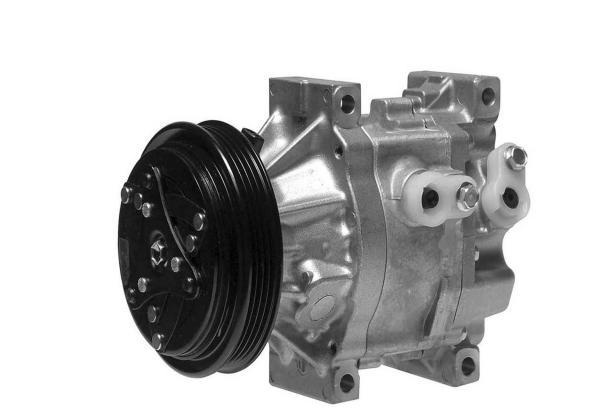Scroll compressors are fast becoming the preferred choice in many modern heating and air conditioning applications. There are many reasons for scroll compressors being a far superior option for both commercial and residential HVAC systems than its alternatives. They offer better energy efficiency, exceptional reliability, better durability, as well as other advantages.
However, taking all these benefits at face value can be difficult for your customers, as they not only want to be familiar with the reasons for these advantages, but also with the overall design of the compressor you’re proposing they choose. That is why it’s worth taking a closer look at what scroll compressors are, how they work, and what their biggest benefits are.
What Is A Scroll Compressor In Heating And Air Conditioning?
Scroll compressors are compressors that operate on the principles of positive displacements by using two concentric spirals that interlock one another. These spirals are constantly moving in orbital motions. These motions are what compresses the fluids by pushing it between the two moving parts.
Due to the fewer number of moving parts, these compressors are more reliable, durable, and offer other advantages over regular compressors. That is the main reason why they are becoming the most popular solutions for both commercial and residential heating and air conditioning systems.
What Are The Advantages Of Scroll Compressors?
The single biggest advantage of scroll compressors is their structure that consists of only a few moving parts. This also allows them to produce minimal variations in torque while operational. However, these are some of the benefits your customers can expect if they choose scroll compressors for their commercial or residential HVAC systems. Let’s see what other benefits are:
Superior Energy Efficiency
Scroll compressors have a unique design that allows them to cool very large amounts of air a lot faster than the alternatives. This, in turn, leads to a greater efficiency of gas compression, as much as 66% higher when compared to a standard compressor. Finally, this efficiency leads to lower power consumption, which is 25.3% lower compared to regular reciprocating compressors.
Flexible Operations
There are several designs and variations of scroll compressors, which makes them suitable for a wide array of potential applications:
- Single-stage compressors operate at a single speed and are ideal for heating and cooling homes.
- Two-stage compressors operate at two different speeds, which saves energy, removes excess humidity, and provides variable heating and cooling for residential applications.
- Variable-capacity compressors are the most advanced type of scroll compressor that offer unparalleled temperature control suitable for a variety of residential and commercial applications.
Durability & Reliability
Scroll compressors only have two parts that move – an orbital scroll and a fixed scroll. This means that there is a lot more reason for failure, making scroll compressors the most reliable type of compressor currently available. Also, the circular motion means that the rubbing velocity is as much as 50% lower, which enhances durability.
Oil-Free
The fixed scroll and the orbital scroll never touch, so there’s no need for oil lubrication. This eliminates the potential for air contamination and oil leaks. Although lubricated scroll compressors still exist, they are not as common as oil-free scroll compressors.
Quiet Operation
Scroll compressors have far fewer torque variations, operate without vibrations, which makes them extremely quiet. Although you can lower the noise of standard compressors by sound-proofing the enclosure, scroll compressors offer quiet operations out of the box.
Varied Applications
Besides being ideal for residential heating and air conditioning, scroll compressors also have a wide array of industrial and commercial applications, such as:
- Superchargers for different types of reciprocating engines
- Vacuum pumps
- Automotive air conditioning
- Pneumatic controls
- Optical equipment
- Computer peripherals
- Medical and hospitals
- Laboratories
- Marine containers
- Trucking
- Fruit and food refrigeration
